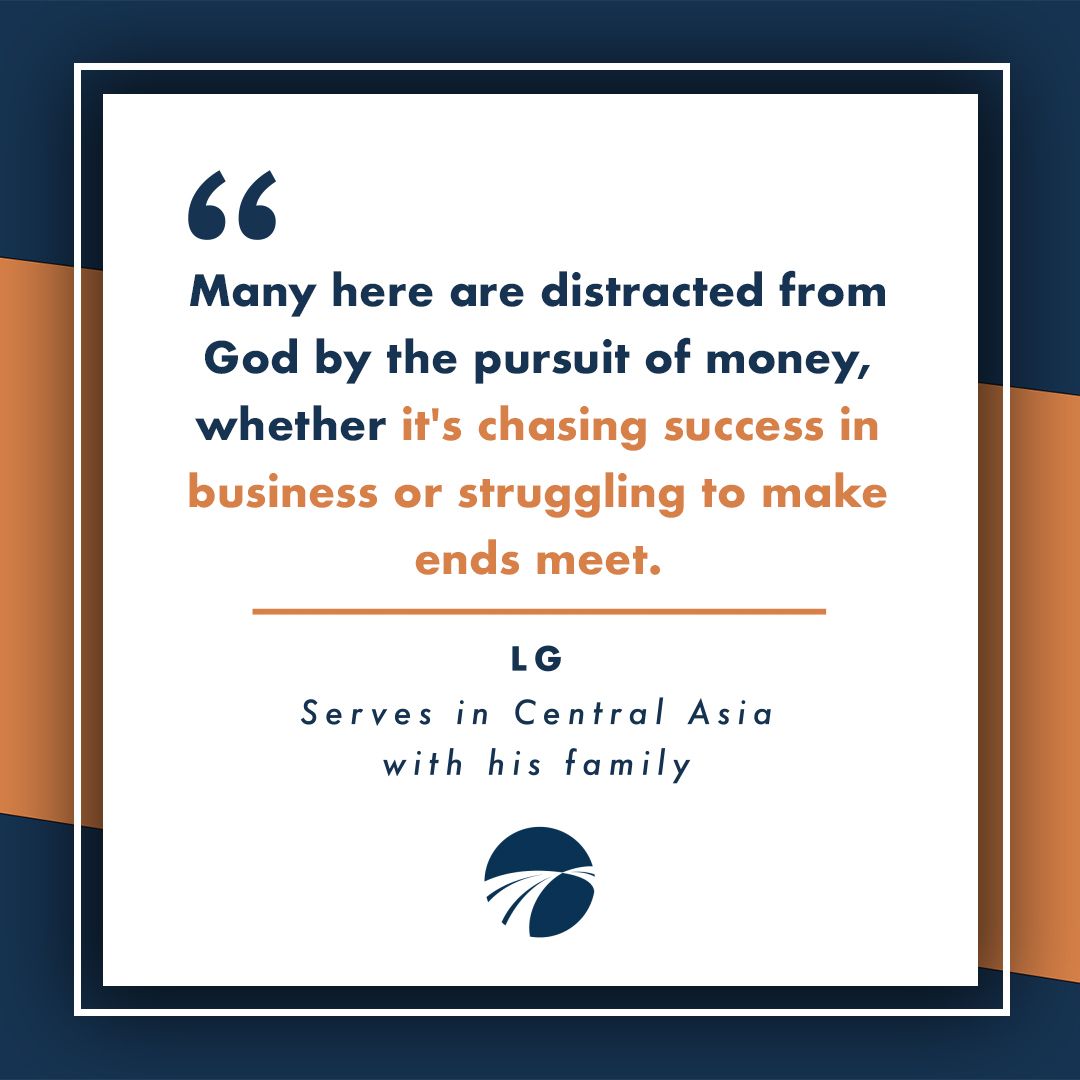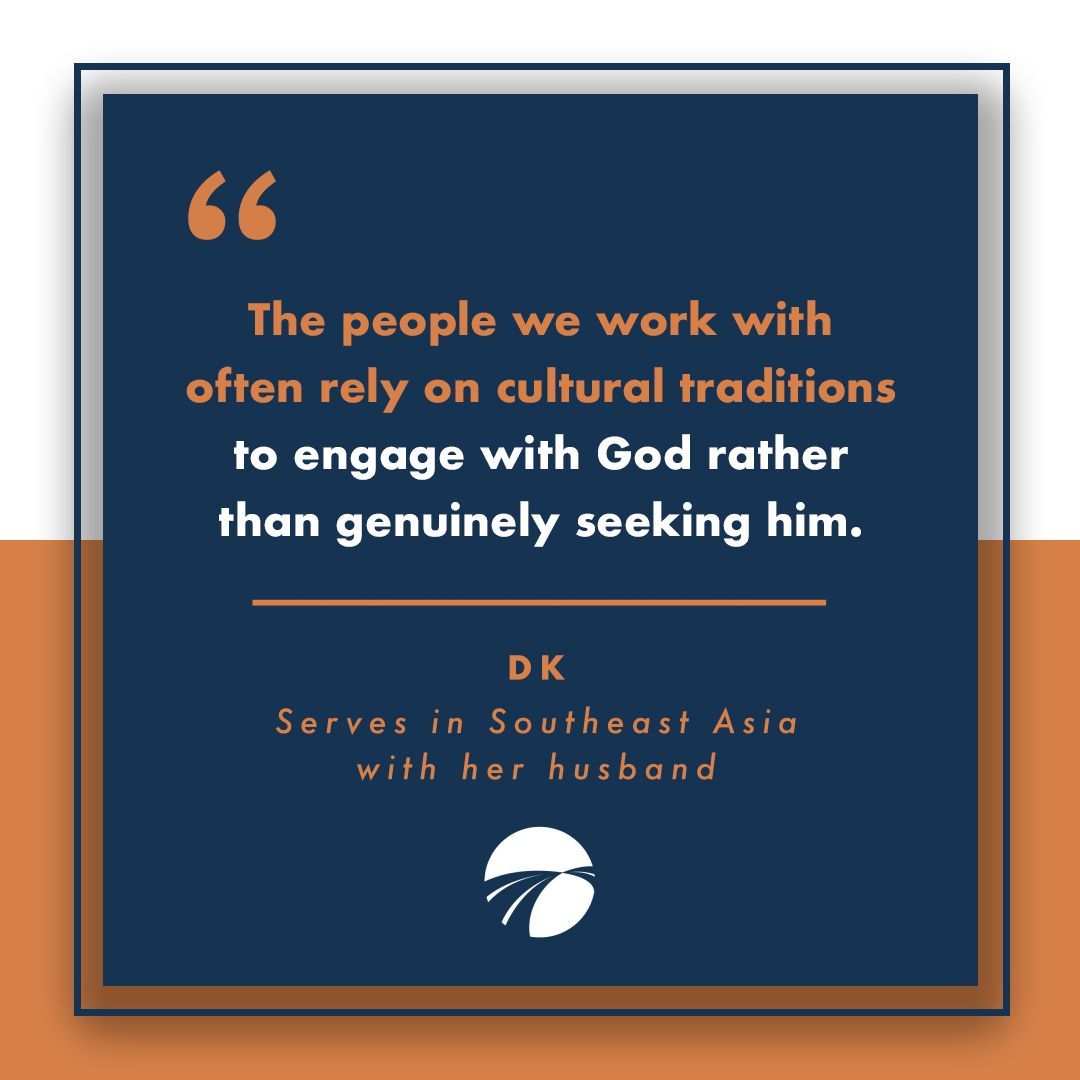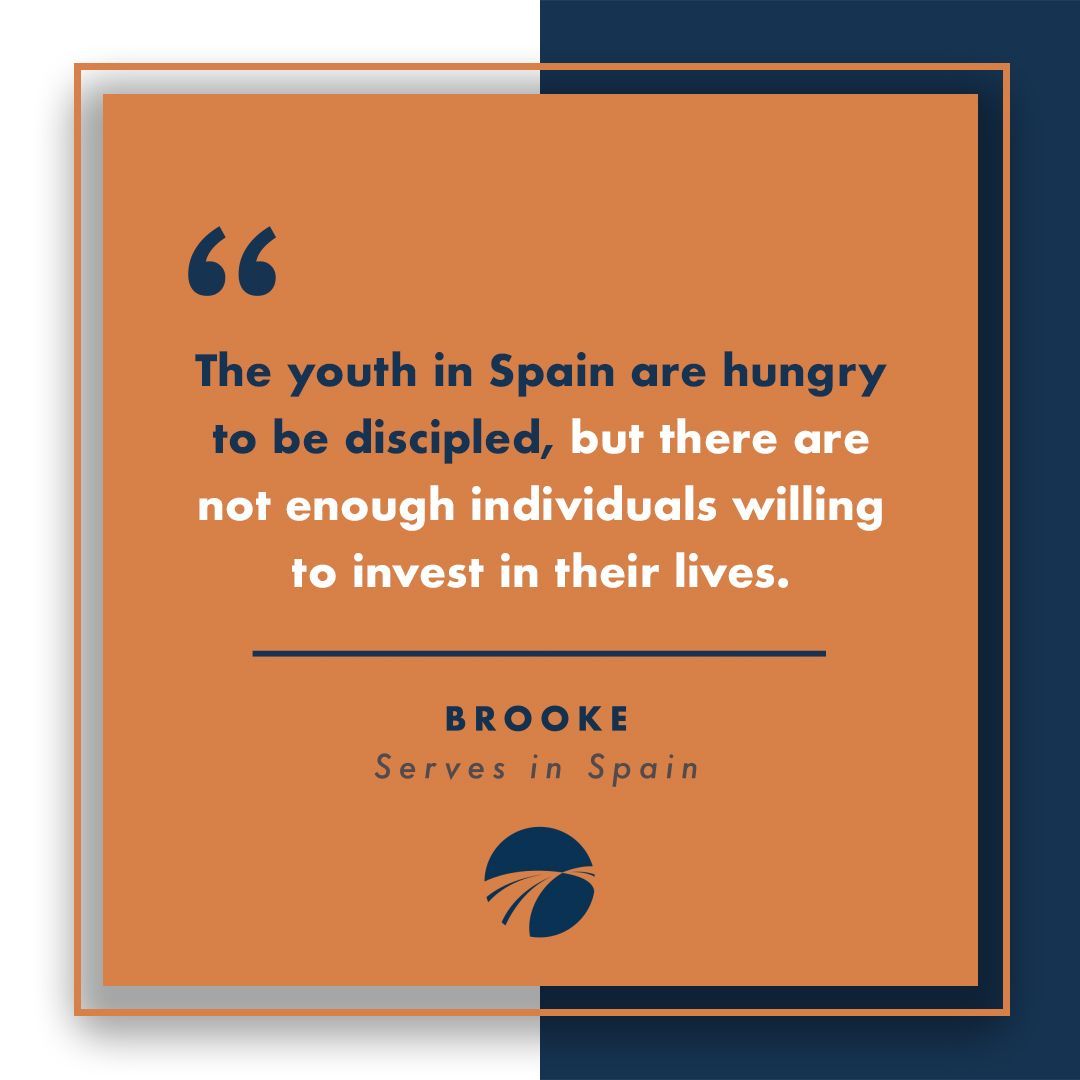
A hunger for discipleship. Physical hardship. Spiritual darkness.
A daily distraction of wealth and survival. These are just a few of the realities that define life and ministry in regions where the gospel is still breaking through.
We asked three of our SEND International missionaries to describe the spiritual and physical needs in the ministry area where they serve. Here's what they said...

I know it may sound cliché, but what’s truly needed is a movement of God’s Spirit among the people. Prayer is one of the most powerful tools we have to see that happen. I believe churches need to unite in prayer for the peoples of Central Asia so that powerful stories of God at work will be shared and draw others to faith in Jesus. Physically, many here are distracted from God by the pursuit of money, whether it's chasing success in the city's business world or simply struggling to make ends meet in poorer areas.
There is a clear need for men and women who love God and can both live as faithful disciples of Jesus and make disciples in the context of their everyday work.



The people we work with are oppressed and without hope, both physically and spiritually. They face significant physical challenges, including limited financial resources, higher mortality rates, discrimination, and reduced access to essential tools for success. While they are open to spiritual matters, they often rely on cultural traditions to engage with God rather than genuinely seeking him. As a result, they remain in spiritual darkness, experience ongoing relational conflict, and depend on faith healers and similar practices.

In Spain, especially among the youth, there is a great need for more discipleship, both spiritually and practically. Spiritually, young people need guidance and support as they grow in their faith. But there is also a practical need: we simply need more people who are willing to step in and walk alongside them. The youth in Spain are hungry to be discipled, but there are not enough individuals willing to invest in their lives.

Not sure where God’s leading you?
Explore mission opportunities and connect with a SEND missions coach who’ll walk alongside you.
Additional Posts




